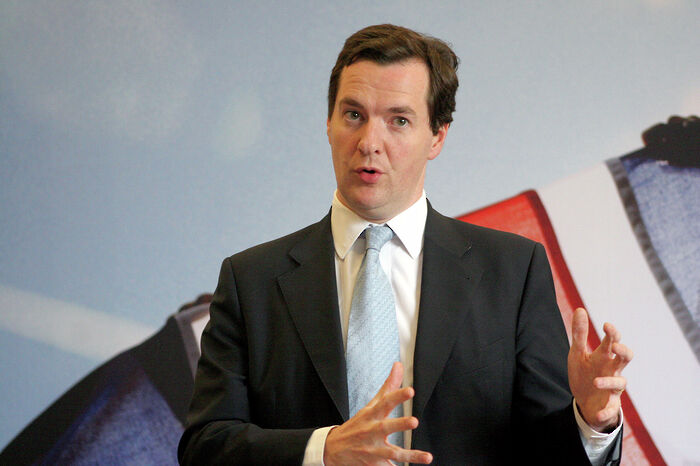There’s something rotten in the state of economics
Daniel Oosthuizen takes issue with aspects of ‘mainstream economics’ and Cambridge’s curriculum, and calls upon non-economists and economists alike to question and challenge these norms.

In the current crisis, some have criticised the government for prioritising the economy over people’s health. Though we might assent to the spirit of this critique, it is not quite the sting it is intended to be because a rather significant aspect of the economy is, in addition to bankers paying themselves handsome bonuses, the way people get their food – and the two are interlinked in unpleasant and uncanny ways. ‘Our entire existence depends on the economy,’ Brecht once wrote; ’and yet it is so complicated a subject that there isn’t enough brainpower in the world to understand it. Humans have built an economy which only Übermenschen could comprehend.’
We tend to see economists as such Übermenschen. Not without reason are they often called the ‘high priests’ of our society. We look upon them with love and fear, and we envy their secret knowledge, written in sacred runes which only the elect may decipher. Truly, it seems to us that the economy is a book, and ‘cannot be read until we have learnt the language and become familiar with the characters in which it is written.’
And yet, in the wake of the financial crash, as banks were collapsing and millions were losing their jobs and homes, the acolytes of the temple – economics students across the globe – started to protest increasingly loudly that something was very wrong with the economics they were being taught. In order to understand these protests, we need to know something about what sort of subject economics really is.
"[...] there were economists who saw it coming. They just weren’t mainstream economists."
Despite its unified façade, there is in fact real diversity and variedness in thinking – past and current – about the economy. But within economics proper, there is a highly dominant ‘mainstream’. This mainstream, usually dubbed ‘neoclassical’ economics, is no monolith either – as any neoclassical economist will be sure to tell you, – but it shares very particular foundational interests, inclinations, approaches and assumptions which in the main go unquestioned. In his entry to the Concise Encyclopedia of Economics, economics professor E. Roy Weintraub condenses this dogmatic foundation into three tenets:
- ‘People have rational preferences among outcomes.’
- ‘Individuals maximise utility and firms maximise profits.’
- ‘People act independently on the basis of full and relevant information.’
Within the arena of these assumptions, mainstream economists may disagree bitterly – but they do not question the framework itself. No doubt it makes the maths easier, and it certainly gives economics a stable, teachable content. But the longer one stares at the foundations, the harder it is to believe they are sound. The fact is, they aren’t. The simplifying assumptions of neoclassical economics are demonstrably false. But by now, mainstream economists are used to this kind of criticism and trot out the well-rehearsed response that it doesn’t matter if the assumptions are unrealistic or false – because a theory should be judged ‘solely on whether it yields sufficiently accurate predictions’ (a defence lifted from Milton Friedman’s On Economics). But here Friedman is hoisted by his own petard – because neoclassical economics fails this test, too. Did it, after all, give us ‘sufficiently accurate predictions’ about the 2008/9 crash? When visiting LSE in 2009 the Queen famously demanded, ‘Why did nobody see it coming?’ But in fact there were economists who saw it coming. They just weren’t mainstream economists.
Through this lengthy prelude I have attempted to illustrate the kinds of reasons why there began to be a push-back by economics students against the narrowness and insularity of their curriculum and a demand for economic pluralism. In 2012, angry with the seeming irrelevance of their course, Manchester students founded the Post-Crash Economics Society. In 2014, the International Student Initiative for Pluralist Economics (ISIPE) was founded by 44 student groups from across the globe, which became Rethinking Economics in the UK. Cambridge’s Society for Economic Pluralism (CSEP) is a part of this movement. Journalists and policymakers are also concerned. Martin Wolf, chief economics commentator at the Financial Times, wrote an encouraging forward to a book co-written by Rethinking Economics; and in 2012 the Bank of England held a conference organised around the startling question: ‘Are economics graduates fit for purpose?’
"[...] the economy is too important to leave to just economists."
Little, however, has changed. In Cambridge there is now a paper in second year on the ‘History and philosophy of economics’, co-ordinated by Ha-Joon Chang, which gives some exposure to more heterodox economic thinking – Karl Marx, Joseph Schumpeter, Adam Smith (who, though often called the ‘father of economics’, is seldom read by mainstream economists), David Ricardo, John Maynard Keynes, Friedrich Hayek, etc. This is certainly a step forward – but is essentially the same as a Theology course covering nothing but Christianity for three years except for one paper in ‘World religions’.
The proximate cause of this inertia seems to be the departments themselves, who see all these calls for ‘pluralism’ as a kind of obsession with the notion of ‘schools’, and stress that so-called ‘mainstream’ economics is not a monolith. Ha-Joon Chang spoke in 2014 about how, because he was a ‘heterodox’ economist, he was passed over for promotion, his classes kept getting cancelled and his work wasn’t published in ‘top’ economics journals (which is why he wrote ‘popular’ books instead).
This struggle to diversify the economics curriculum and turn it into a site of productive debate and contestation will undoubtedly continue. Student engagement and solidarity across subjects is crucial if we are to gain any ground. Simultaneously, the economy is too important to leave to just economists. They aren’t Übermenschen; they’re fallible human beings like the rest of us, trying to do the best they can. As Ha-Joon Chang writes in 23 Things they don’t tell you about capitalism, you don’t actually need economists to have good economic policy. ‘Economists were in fact conspicuous by their absence in the governments of the East Asian miracle economies. Japanese economic bureaucrats were mostly lawyers by training. In Taiwan, most key economic officials were engineers and scientists, rather than economists, as is the case in China today.’ Compare this to the disastrous ‘free-market’ economic policies in, say, Chile, led by the Milton Friedman–trained ‘Chicago Boys’ – documented by Naomi Klein in The Shock Doctrine – from which the country is still reeling.
So, as the Enlightenment motto goes: ‘Dare to know! Dare to follow your own understanding!’ Because we desperately need a far more productive dialogue about the economy – between mainstream and heterodox economists, between economists and non-economists – if we are to have any hope of facing the challenges this century will bring.
 Features / Should I stay or should I go? Cambridge students and alumni reflect on how their memories stay with them15 December 2025
Features / Should I stay or should I go? Cambridge students and alumni reflect on how their memories stay with them15 December 2025 News / SU reluctantly registers controversial women’s soc18 December 2025
News / SU reluctantly registers controversial women’s soc18 December 2025 News / Dons warn PM about Vet School closure16 December 2025
News / Dons warn PM about Vet School closure16 December 2025 News / Cambridge study finds students learn better with notes than AI13 December 2025
News / Cambridge study finds students learn better with notes than AI13 December 2025 Comment / The magic of an eight-week term15 December 2025
Comment / The magic of an eight-week term15 December 2025









